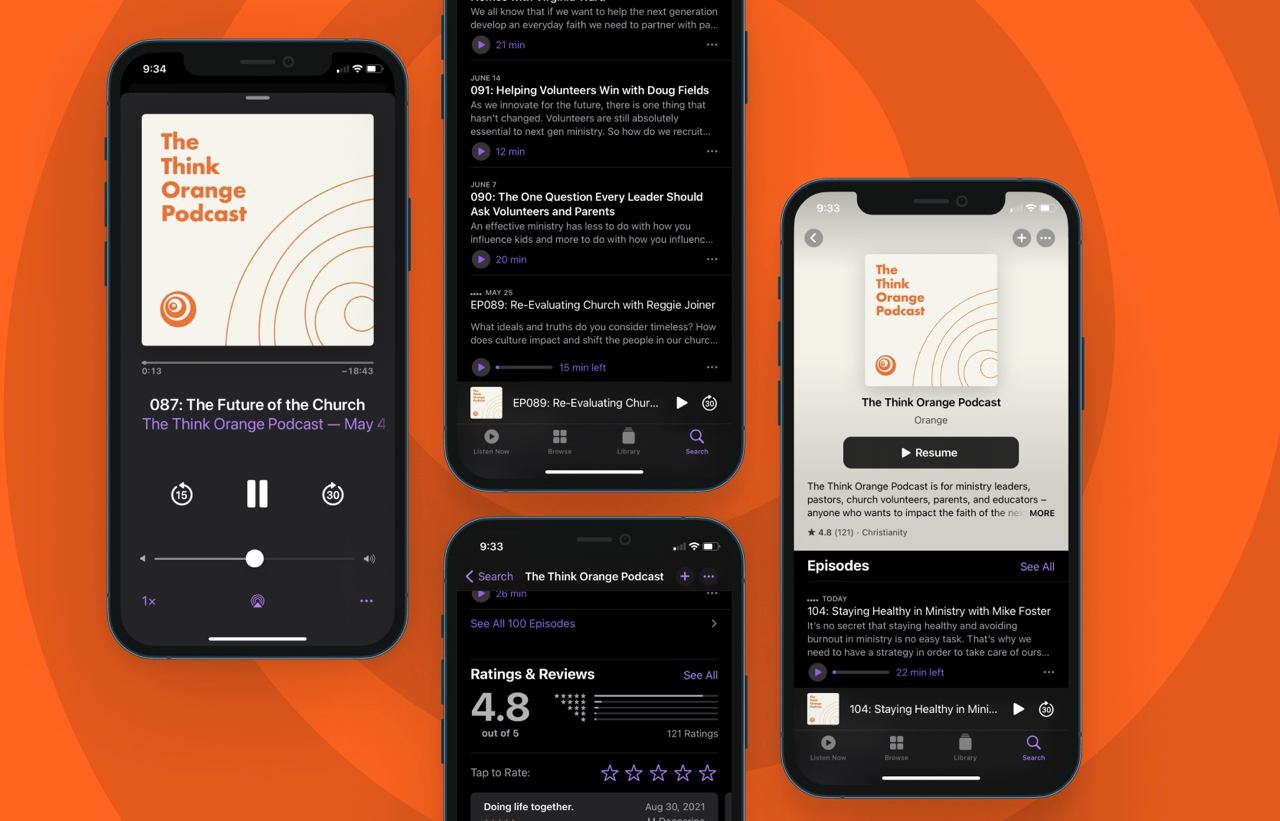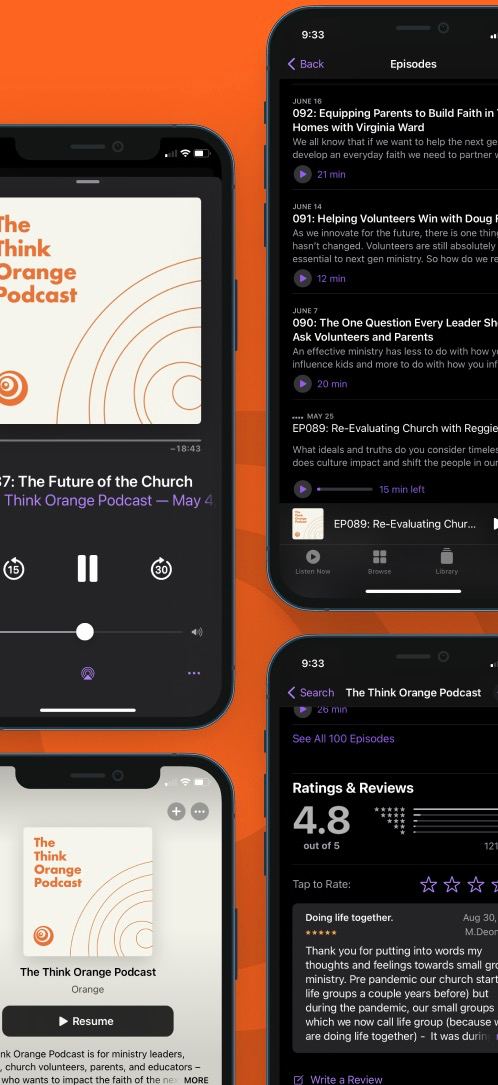If you’re a listener of this podcast, you likely understand the great importance of small groups and how they’re a big part of growing the faith of kids and adults alike. However, the commonly used phrase, “If you fail to plan, you plan to fail” can also apply to small groups: If small group leaders and the people who oversee them don’t communicate the strategies and wins that make a small group thrive, nobody wins.
In today’s episode of the Think Orange Podcast, you’ll hear from Tom Shefchunas, Director of Strategy at Orange, Afton Phillips Director of Lead Small at Orange, and Ashley Bohinc, Director of Middle School Strategy at Orange. Together, they’ll discuss how you can set your small group leaders up for success.
Topic Timeline:
Dave introduces podcast guests Tom Shefchunas, director of strategy at Orange, Afton Phillips, director of lead small at Orange, and Ashley Bohinc, director of middle school strategy at Orange (:38)
Ashley says ministry isn’t possible without your volunteers. What is their win? How can you set them up for success? (2:54)
How a lot of ministries miss the clear win of training small group leaders to lead students (3:32)
Ashley talks about Lead Small and Creating A Lead Small Culture books and how they shaped her work experience (5:13)
Tom shares a story about a recent failure they had as a team due to a lack of clarity (12:20)
When there is confusion on what’s most important, people do everything, which leads to feelings of frustration (14:22)
Tom talks about improving the structure and empowering the leaders of small groups (15:19)
Tom shares how you unintentionally short-circuit the power of what happens in small group (20:16)
Afton and Ashley introduce themselves and their roles at Orange (23:34)
What clarifying the win of small group leaders is from the perspective of Afton and Ashley (24:20)
What are the benefits of a church setting small group leaders for success? (25:16)
Afton shares her experience of leading her small group of third graders (25:45)
Ashley shares how church leaders should inform small group leaders about what to anticipate this week from the kids (27:33)
Afton says retaining a small group leader is even better than recruiting one (28:40)
It’s OK for a small group leader to not always have all the answers (29:14)
Small group leaders quit because they don’t have access to their leaders (30:16)
Afton and Ashley answer how they’d answer a kid who asks if dinosaurs are in the Bible (31:45)
Ashley shares an experience she had with a sixth grader in a small group setting (33:00)
You can teach kids and students to play with the Bible and have an open dialogue (33:45)
What does it look like for a church to incorporate a training throughout the year for small group leaders? (35:27)
Afton talks about Weekly and how it benefits small group leaders (36:41)
When you have focus group time, you find out what you’re doing well and what needs to change (37:23)
How to structure your ministry for growth through strategic organization and introducing a coaching system (39:33)
How to help your small group leaders grow (41:08)
Afton and Ashley share their advice on how small group leaders can talk to their leaders about their ideas (42:44)
What ministry leaders can do to change their culture to include the coaching system (44:23)
How to incorporate necessary changes in your small group model (45:32)
Ashley and Dave give closing remarks (47:36)






